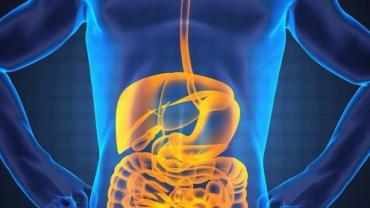
Over the past 50 years, Americans have lost much of the diversity in their diet. This is playing an essential role in the gut microbiome and is a contributing factor in the epidemic of obesity, insulin resistance, autoimmune diseases, and gastrointestinal disorders. Only 10 percent of Americans meet their daily fiber requirements of 25 to 38 grams per day. More and more research is demonstrating that the food we eat affect what bacteria populations we have in our gut.
It’s simple – diet dictates the diversity and abundance of the beneficial bacteria that make up the gut. Dietary fiber is crucial in supporting the proper microbial balance and optimizing gut health. There are over 400 species of microbes in the human intestinal tract, totaling over 15 pounds. That’s a mass that exceeds all other organs in the body other than skeletal muscle. In ecological terms, it is more stable to have diverse populations in any ecosystem. The same is true for the gastrointestinal microbiome. In almost all diseases states, the microbiome has lost diversity. I personally see this all the time on test results for my patients with autoimmune diseases and gastrointestinal disorders.
In a recent study, researchers revealed that infants with a lower diversity of gut bacteria at three months of age are at a higher risk to become sensitized to foods such as milk, egg or peanut by the time they reach one year of age. In this study, researchers also found that gut bacterial patterns during infancy can serve as a biomarker for future disease.
There was also a study published in the journal Microbiome that showed people who regularly take proton pump inhibitors (PPIs) have less microbial diversity, which increases their risk for opportunistic infections like clostridium difficile and pneumonia, as well as vitamin deficiencies and bone fractures.
Other previous research has indicated that obesity has a microbial component that alters the caloric extraction from ingested food. If you have more Bacteroidetes, the individual tends to be leaner. High Firmicutes:Bacteroidetes ratios have been known to increase the caloric extraction from food, and these individuals tend to be more obese. This ties together the importance of dietary fiber and weight loss.
The gut plays an essential role in our immune function as well as in the digestion and absorption our food. The intestinal barrier provides an effective defense from pathogenic bacteria as well a healthy environment for beneficial bacteria.
Dietary approaches provide the most effective means to returning balance and dysfunction with the gastrointestinal system. Patients may need antimicrobials, botanicals, enzymes, prebiotics, probiotics, and glutamine to optimize the gastrointestinal environment. Diagnostic considerations may include a comprehensive digestive stool analysis, organic acid testing, food antibody testing, as well as gluten sensitivity testing or elimination of gluten from the diet.
In the largest longitudinal study of the microbiome to date, researchers from MIT, Harvard, and Massachusetts General Hospital found that the onset of type 1 diabetes was preceded by a drop in microbial diversity. Furthermore, a recent article in Psychoneuroendocrinology found a correlation between mothers with high stress levels (high cortisol levels) and the diversity of intestinal microbiota in the babies' guts.
I also see low short chain fatty acids (SCFAs) associated with low diversity and abundance of the commensal bacteria on patient stool profiles. When patients introduce prebiotics or increase their dietary fiber intake by consuming fruits and vegetables, the beneficial bacteria and SCFAs both increase. When it comes to dietary fiber and Crohn’s disease or ulcerative colitis, there can be a fine line between harmful and helpful. In these cases it may make more sense to supplement with butyrate.
Probiotics also play an essential role in gastrointestinal health by inhibiting harmful bacteria. Probiotics improve intestinal function, maintain a strong immune system, and maintain the integrity of the lining of the intestines.
Probiotics help encourage microbial diversity, especially if the probiotic supplement consists of a mixed species. In ecological terms, it is more stable to have diverse populations in any ecosystem. We see that the same is true for the gastrointestinal microbiome.
By Dr. Michael Jurgelewicz